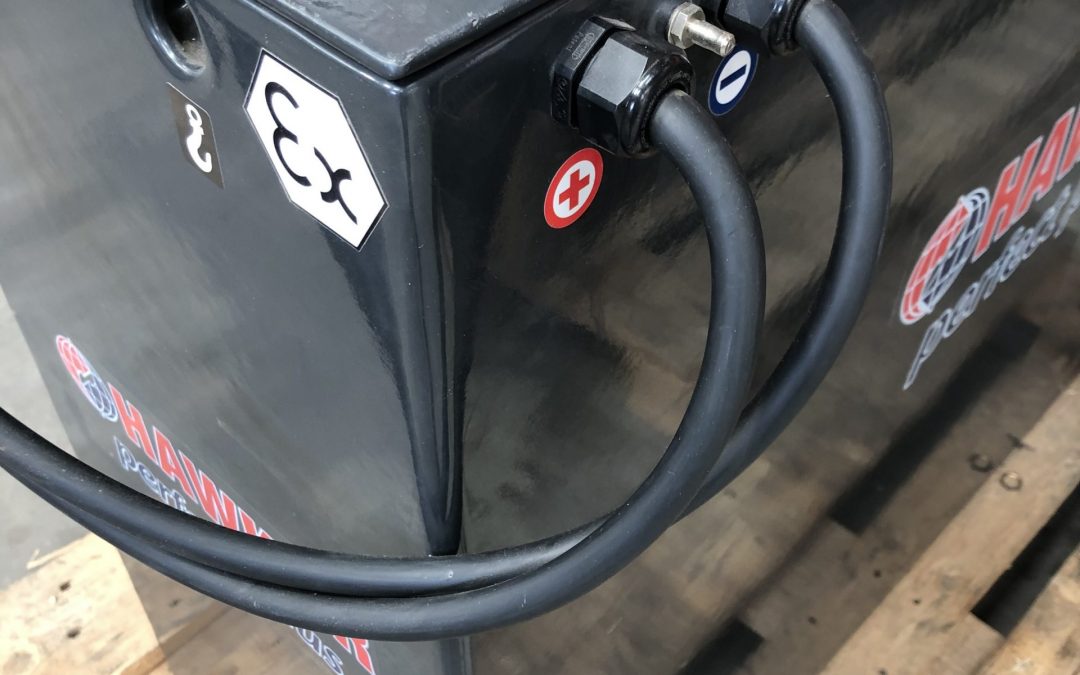We frequently get asked to quote for “Zone 2” forklifts that include a standard OEM battery to reduce cost. Our response about the battery is always the same. It’s no, because batteries in ATEX trucks should be certified properly, including testing for vibration and shock. But not every conversion company takes this requirement into consideration, as Darren Boiling explains.
First of all, businesses should be cautious and aware that it is potentially hazardous for forklifts featuring standard industrial batteries to be used in Zone 2 hazardous areas, unless they have been rigorously tested and certified.
“Assessment and adaption” of standard batteries for use in ATEX Zones is simply not enough. The cell’s internal construction is fundamental to the explosion protection performance, and this cannot be verified without thorough analysis and rigorous testing. An external visual inspection is not sufficient.
To comply with ATEX 2014/34/EU, members of the EN1755 committee CEN/TC150/WG13 (the main Ex converters and OEMs are in the committee) agreed more than four years ago that “assessing” a standard battery in a forklift is not aligned with the Ex-requirements.
The standards are clear that electrical equipment, including the battery, shall meet the equipment category of the truck in accordance with EN 60079-0. Several tests like mechanical shock and vibration need to be performed as required in EN 60079-0, EN 60079-7 and EN 60079-31 for dust application. And there are numerous ATEX battery options available that do comply in this way.
Furthermore, the Ex Notified Body group also issued a formal statement which confirmed that the answer is a clear “NO” to using a standard industrial battery that has not been tested in this way. The group states that batteries shall fulfil specific requirements to avoid the risk of ignition during normal operation (Category 3) and expected malfunctions (Category 2).
In other words, traction batteries need to be appropriately tested according to requirements in the Ex-standards, in their own right, not as part of the overall assessment and adaption of the truck.
“ATEX” trucks that have been quoted by other conversion companies featuring “assessed” or “adapted” batteries, may not comply with ATEX 2014/34/EU, which would negate the CE or UKCA marking.
What seems to be happening is that by accepting standard batteries are ok to use, conversion companies are suggesting that the batteries are not subject to vibration or shock. We know that this is simply not possible in a materials handling application!
This detail is easily skimmed over in a quotation and needs to be questioned by forklift OEMs and dealers.
What’s more, the suppliers that are placing these trucks on the market, perhaps selected due to a lower price on the assumption that compliance is robust, are exposing themselves, their customer and the end user to potentially serious risk which is wholly avoidable.
Rest assured, Pyroban follows approved codes of practice, which is why we have remained the leading explosion protection company for forklifts in the world for more than 50 years.
When quotations are cheap, there is usually a very good reason. Is it worth the risk when you consider what is at stake?
For more information contact our technical sales team on +44 (0) 1273 456800 or info@pyroban.com.
